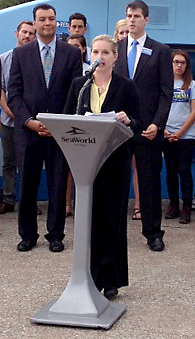Heading 2
Lorem ipsum dolor sit amet, consectetur adipisicing elit. Nostrum minus ea suscipit porro alias corporis libero at. Perferendis omnis, veniam nemo beatae vel? Tempora numquam a repellat eaque natus, magnam?
Heading 2
Lorem ipsum dolor sit amet, consectetur adipisicing elit. Autem ipsum mollitia neque, illum illo excepturi, eum incidunt fugit nostrum est, voluptate eaque minima corporis debitis at, dolores ipsam. Quaerat, dolores.
Heading 2
Lorem ipsum dolor sit amet, consectetur adipisicing elit. Autem ipsum mollitia neque, illum illo excepturi, eum incidunt fugit nostrum est, voluptate eaque minima corporis debitis at, dolores ipsam. Quaerat, dolores.
Heading 2
Lorem ipsum dolor sit amet, consectetur adipisicing elit. Autem ipsum mollitia neque, illum illo excepturi, eum incidunt fugit nostrum est, voluptate eaque minima corporis debitis at, dolores ipsam. Quaerat, dolores.
Heading 2
Lorem ipsum dolor sit amet, consectetur adipisicing elit. Autem ipsum mollitia neque, illum illo excepturi, eum incidunt fugit nostrum est, voluptate eaque minima corporis debitis at, dolores ipsam. Quaerat, dolores.
SAN DIEGO, CA (August 29, 2013) – The California Grocers Association joined Sen. Alex Padilla (D-Van Nuys), other state and local officials and environmentalists at a press conference inside Sea World San Diego on Aug. 29 to encourage reusable bag use by reducing single-bag usage.
 “The model of banning single-use plastic bags and allowing recyclable paper bags for a nominal charge has shown to encourage reusable bag use, provide consumers no-cost and low-cost carryout options, and minimize operational and financial impacts to retailers,” said Sarah Paulson Sheehy, Director, Southern California Government Relations, CGA.
“The model of banning single-use plastic bags and allowing recyclable paper bags for a nominal charge has shown to encourage reusable bag use, provide consumers no-cost and low-cost carryout options, and minimize operational and financial impacts to retailers,” said Sarah Paulson Sheehy, Director, Southern California Government Relations, CGA.
Numerous jurisdictions throughout San Diego County are considering carryout bag legislation. CGA has encouraged municipalities to adopt a regional approach to regulating carryout bag use, rather than individual cities approving differing ordinances.
While a regional and measured approach can “respect the public and businesses while working to achieve environmental goals,” Sheehy said the regulating of bags is a statewide concern and should be resolved in the State Legislature.
 “This would create the most environmental benefit and eliminate the patchwork of local legislation,” she said. “As an industry, we continue to push for a reasonable statewide law in order to remove the difficulty of implementing dozens of varying local bag laws.”
“This would create the most environmental benefit and eliminate the patchwork of local legislation,” she said. “As an industry, we continue to push for a reasonable statewide law in order to remove the difficulty of implementing dozens of varying local bag laws.”
Earlier this year, Senator Padilla introduced legislation – Senate Bill 405 – to regulate carryout bag use.
Other speakers included; John Reilly, President, Sea World San Diego; Nathan Weaver, Environment California; Kevin Konopasek, San Diego Tourism Authority; Chris Ward, Office of Senator Marty Block (D-San Diego) and Jill Witkowski, San Diego Coastkeeper.
